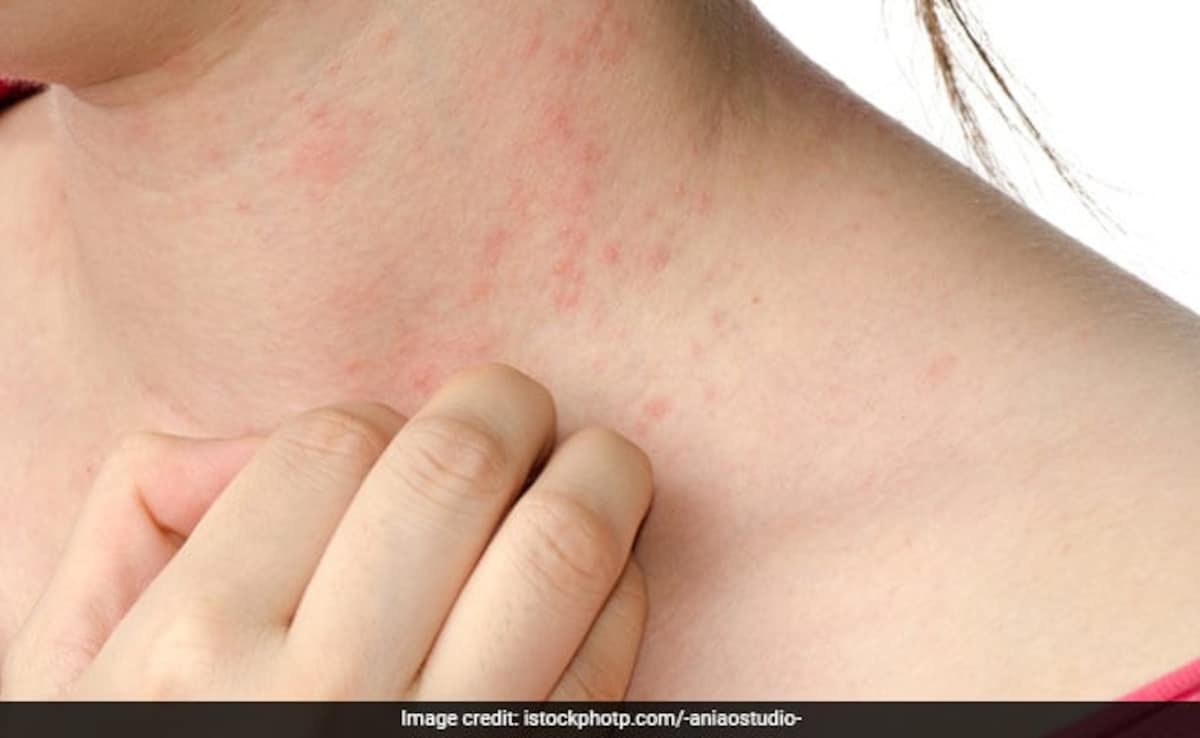
Eczema, clinically known as atopic dermatitis, is a chronic inflammatory skin condition that affects both children and adults. Characterised by dryness, itching, redness, and rashes, it is not contagious but can severely impact quality of life. According to the World Allergy Organization, eczema affects up to 20% of children and 10% of adults globally, with rising prevalence in urban India. Seasonal transitions, particularly the humid Indian monsoon and the dry, windy autumn (fall), are notorious for triggering flare-ups. During the rainy season, excess moisture, fungal growth, and insect bites often irritate sensitive skin. Conversely, autumn brings dry air, fluctuating temperatures, and increased allergens, leading to itching and cracked skin.
Doctors emphasize that eczema is not caused by one single factor. Instead, it arises from a combination of genetic predisposition, immune system overreaction, environmental triggers, and impaired skin barrier function. While there is no "cure," effective management, including skincare, lifestyle modifications, and medical treatments, can significantly reduce symptoms and prevent relapses.
As the monsoon retreats and fall approaches, here's what you need to know about recognizing symptoms, managing triggers, and keeping eczema under control.
Recognizing Eczema: Symptoms To Watch For
Eczema symptoms vary with age and severity but commonly include:
- Dry, itchy skin that worsens at night.
- Red to brownish patches, often on the face, neck, elbows, knees, or hands.
- Thickened, cracked, or scaly skin in chronic cases.
- Oozing or crusting lesions if infection sets in.
- In children, eczema often appears on the cheeks, scalp, and limbs, while adults may experience more localised but persistent patches. Seasonal triggers can worsen itching and discomfort, sometimes leading to a cycle of scratching, skin damage, and infection.
Dermatologists advise seeking medical care if itching disrupts sleep, if over-the-counter creams don't help, or if there are signs of bacterial or fungal infection.
Eczema Triggers During Monsoon Season
The Indian monsoon creates an environment of high humidity and warmth that encourages fungal growth and sweat retention. For people with eczema, this often means:
- Sweat-induced itching and rashes in body folds.
- Fungal infections worsening eczema patches.
- Mosquito bites or insect allergies that aggravate sensitive skin.
- Additionally, damp clothing or staying in wet footwear for long periods can increase irritation.
Eczema Triggers During Fall Season
As monsoon humidity fades, autumn brings drier air and fluctuating temperatures. These conditions strip natural oils from the skin, leading to:
- Dryness and flaking, especially on hands and face.
- Allergen exposure, with pollen and dust being common triggers.
- Cold winds that make skin more prone to cracking.
The World Health Organization and Indian dermatology associations note that environmental triggers, including weather changes, allergens, and irritants, are among the most common causes of flare-ups, highlighting the need for seasonal care strategies.

Photo Credit: iStock
Managing Eczema: Practical Tips And Treatments
Whether you get a flare-up during monsoon or fall, here are some practical tips to manage and treat eczema.
Daily Skincare Routine
- Moisturise frequently using fragrance-free emollients or ointments; ointments work better in dry fall weather, while lighter lotions help in humid monsoons.
- Take short lukewarm baths with gentle cleansers, but avoid harsh soaps.
- Pat dry instead of rubbing the skin after bathing or washing.
Lifestyle Adjustments
- Wear cotton, breathable fabrics instead of synthetic or wool.
- Avoid long exposure to sweaty or damp clothing during monsoon.
- Keep indoor humidity balanced; use a humidifier in autumn if the air gets too dry.
Medical Interventions
- For moderate to severe cases, dermatologists may prescribe:
- Topical corticosteroids or calcineurin inhibitors to reduce inflammation.
- Antihistamines for severe itching.
- Antibiotics or antifungals if secondary infection develops, to be taken only under doctor's instructions.
- Newer biologic therapies (like dupilumab) for resistant eczema, as per international guidelines and doctor's prescription.
Timely treatment helps break the "itch-scratch cycle" and prevents complications.
Building Long-Term Resilience Against Eczema
Eczema can feel overwhelming, especially during unpredictable weather. But with a proactive approach, recognizing symptoms early, avoiding triggers, and following a doctor-guided skincare plan, flare-ups can be minimised. Seasonal awareness is crucial: stay cool and dry during the monsoon, and protect skin from dryness in autumn.
As the Indian Association of Dermatologists emphasizes, the key is consistency. Regular moisturising, smart lifestyle choices, and timely medical consultation can keep eczema under control. Remember, managing eczema is less about quick fixes and more about long-term resilience.
Disclaimer: This content including advice provides generic information only. It is in no way a substitute for a qualified medical opinion. Always consult a specialist or your own doctor for more information. NDTV does not claim responsibility for this information.
References
World Allergy Organization. (2022). Atopic Dermatitis (Eczema) Factsheet.
World Health Organization. (2022). Skin NTDs and chronic inflammatory conditions.
Indian Association of Dermatologists, Venereologists and Leprologists (IADVL). (2023). Guidelines on Atopic Dermatitis Management in India.
National Institutes of Health (NIH). (2023). Eczema (Atopic Dermatitis): Clinical guidelines and treatments.
National Eczema Association. (2022). Seasonal Triggers of Eczema.
Track Latest News Live on NDTV.com and get news updates from India and around the world

